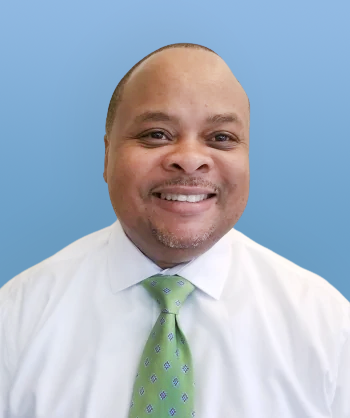Mon - Fri 8:00 - 6:30
Mon - Fri 8:00 - 6:30
 On HALO
On HALO
12 hours ago

Just days ahead of a headlining performance at the Essence Festival of Culture, New Orleans rap legend Master P announced that the set would be his last. After over three decades of setting the standard for independent rap hustle with his label No Limit Records and classic songs like “Ghetto D” and “Make ‘Em Say Ugh,” the man born Percy Miller will hang up his mic to accept a position coaching the basketball team for his hometown college, the University of New Orleans.
With Master P moving on from music, it’s a great time to reconsider his substantial musical legacy — and, perhaps, to speculate a bit on his future, which has ties to all the things he did outside of music. You know how J. Cole played pro in Africa and Canada? As we’ll discover throughout this retrospective, as with so many things, he was just following in footsteps laid down by Master P.
It’s a fitting career pivot for the veteran music impresario, who already had at least a pair of side quests into the sports world. In 1999, he was invited to play in the Charlotte Hornets’ training camp; although he didn’t make the roster, the opportunity turned into a second NBA stint with the Toronto Raptors the following season. He also diversified No Limit to include sports management, representing the New Orleans Saints’ Ricky Williams in his 1999 contract negotiation.
While other rap impresarios such as Jay-Z and Dr. Dre seem to get more press these days, it’s fairly safe to say that hip-hop just wouldn’t look or sound the same without Master P. Certainly, No Limit Records was one of rap’s first completely independent record labels, and its unprecedented success set the bar for endeavors from peers like fellow New Orleanians Cash Money Records and successors such as Tech N9ne’s Strange Music and Los Angeles-based Top Dawg Entertainment.
No Limit was spun off from No Limit Record Shop in Richmond, California, where P first sold tapes from himself and his small cadre of initial signees, which included Big Ed, Dangerous Dame, and Kane & Abel. The direct market success of No Limit led to its deal with Priority and relocation to New Orleans, where P signed many of the artists that eventually became one of the most iconic rosters in Southern rap: Mystikal, Mia X, Mac, Mercedes, Silkk The Shocker, C-Murder Fiend, and even eventually Snoop Doog, fresh from his falling out with Death Row.
Aside from putting New Orleans on the map as one of hip-hop’s most productive hubs, No Limit pioneered the borderline insane level of output we’ve come to expect from today’s rappers. Every time the label released an album, its jewel case booklet featured ads for at least four more listed as “coming soon.” Any discography printed online is almost certainly incomplete, as even the most ardent fans probably couldn’t tell you if every one of those projects dropped as planned.
Then there are the covers. There have already been extensive histories written about Houston’s Pen & Pixel Graphics Inc., the design company that photoshopped bling, flames, military tanks, strippers, and brown bears onto the covers of albums, generating some of the most ludicrous and legendary album covers in hip-hop history. This isn’t scientific, but there’s a nonzero chance that some portion of No Limit’s awe-inspiring sales numbers in the late ’90s and early 2000s were at least partly inspired by the covers alone.
The success of the label allowed No Limit to spin off into a diverse portfolio of industries, including low-budget films (a tradition that continues to this day with labels like Buffalo, New York’s Griselda picking up the torch), television production (hello, 50 Cent and G-Unit), book publishing, fast food (Rap Snacks!), real estate, and even a travel agency. There should be little doubt that P’s broad-ranging, omnivorous appetite for business laid a blueprint for so many rappers-turned-moguls to follow — and a map of pitfalls to avoid in the process.
At Essence Fest, P seemed reluctant to reflect on those days, choosing instead to highlight his ongoing and future endeavors, as well as partners like former Pretty Ricky member Spectacular Smith and Smith’s online business school, Spectacular Academy. The two also apparently have a joint interest in tech. He passed the mic to entrepreneur Jack Hutton, who gave away pieces from his designer eyewear collection to attendees. And he took care to direct attention to Syrita Steib, founder of Operation Restoration, a non-profit geared toward reintegration for incarcerated women, offering education, housing, and employment resources.
And as for P’s future employment: while I’m sure his experiences playing pro and semi-pro basketball and coaching AAU will serve him well at U of New Orleans, it’s his killer instinct that will probably end up determining his success there. During a weekend celebrity basketball game presented by The Battle of Jollof in which P coached Team Jambalaya, he demonstrated some real hoop psychopathy, instructing his team to press full-court from opening tip-off. Again, this was in an exhibition game featuring teams named after diaspora rice dishes, stocked mostly with actors and influencers. Kobe Bryant was definitely looking down grinning from ear to ear.
So if the next few years sees a rash of rappers suddenly jumping into coaching or commissioning their own basketball leagues, you can thank Master P. He may not get the credit for being the pioneer that he is, but just remember: if a rapper anywhere does practically anything other than rap, Master P probably did it first.